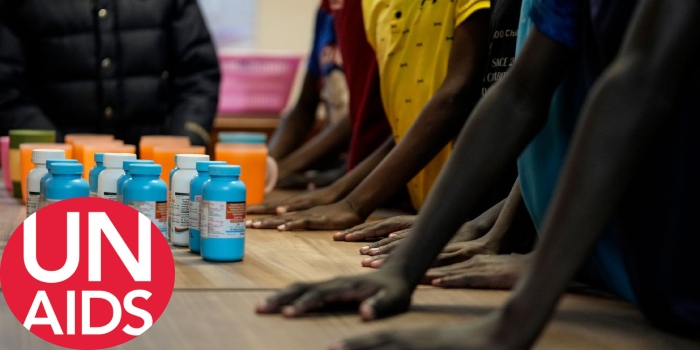The United Nations has disclosed that 6 million new HIV infections and 4 million AIDS-related deaths could occur by 2029 if the U.S. does not restore funding to PEPFAR, the landmark initiative credited with saving 26 million lives since its launch in 2003.
The program, which provides critical HIV treatment and prevention services, faces deep cuts under a White House budget freeze, threatening to reverse decades of progress in the global fight against AIDS.
According to UNAIDS, the impact will be most severe in eastern and southern Africa, which bears 53% of the global HIV burden. Women and girls are particularly vulnerable, accounting for 60% of new infections on the continent.
In the Democratic Republic of the Congo (DRC) alone, 520,000 people live with HIV, including 300,000 women and 50,000 children.
PEPFAR’s expected KSh 14 billion funding for 2025 was meant to provide lifesaving treatment to 209,000 people, but now, clinics are closing, health workers are being laid off, and drop-in centres for antiretroviral drugs are shutting down.
"This means that we currently have 440,000 people living with HIV who are on treatment. Thanks to this treatment, they are alive," said Susan Kasedde, head of UNAIDS in the DRC.
Without PEPFAR, she warned, new infections could soon outpace treatment efforts, pushing the region back into an era of unchecked AIDS deaths.
https://x.com/UNAIDS/status/1942955111791112367
UNAIDS Executive Director Winnie Byanyima warned that a grim future awaits if funding isn't restored.
"We will see a real surge in this disease, we will see it come back, and people dying the way we saw them in the 90s and 2000s."
The numbers are staggering:
-
8.7 million new infections projected by 2029
-
6.3 million deaths if PEPFAR support disappears
-
Thousands of health workers have already been laid off
"This sudden withdrawal of U.S. funding has led to the closure of many clinics and the laying off of thousands of health workers—nurses, doctors, lab technicians," Byanyima said. "It's a lot."
On the global stage, the crisis extends beyond HIV programs. The UN Refugee Agency (UNHCR) reports that lifesaving aid has been slashed in war-torn eastern DRC, while UNICEF warns that progress in reducing child mortality by 60% since 1990 could unravel.
The International Organization for Migration (IOM) also highlighted severe cuts to support for displaced and migrant communities.
Byanyima urged the U.S. to reconsider, stressing that while gradual funding reductions may be reasonable, sudden cuts are catastrophic.
"We have not heard of other governments pledging to fill the gap," she said.
With PEPFAR’s 90-day funding review set to conclude next month, advocates are making a final plea to the White House to reinstate support and prevent a public health disaster.

